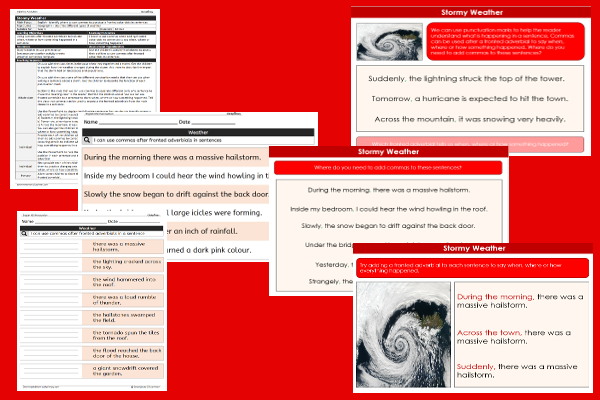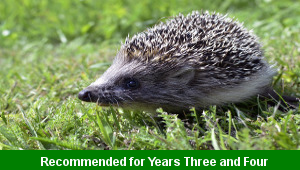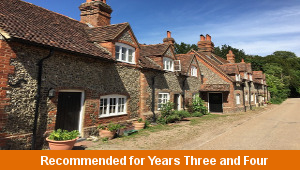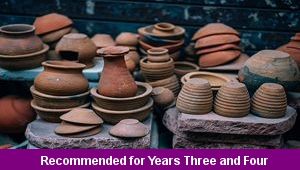Stormy Weather

This English teaching pack for Key Stage Two gets the children to explore and record where to use commas to punctuate fronted adverbials in sentences about the weather to show when, how or where different things happened during a storm.
The class can practise adding fronted adverbials to selected sentences to show the impact of weather on people and landscapes.
Download this teaching pack including a lesson plan, classroom activities and an interactive presentation to explore and record where to use commas to punctuate fronted adverbials in sentences about the weather to show when, how or where different things happened during a storm
Activities in this teaching pack include a worksheet to identify where to use commas to punctuate fronted adverbials in sentences about the weather and a template to practise using commas to add different fronted adverbials to sentences to indicate when, how or where things happened during stormy weather.
The interactive presentation gets the children to explore where to use commas to punctuate fronted adverbials in sentences about different types of weather.
This lesson is part of an English scheme of work to get the children to investigate how to add and punctuate fronted adverbials in model sentences explaining when, how or where something happened in the weather. There are teaching activities for shared learning, differentiated worksheets to support independent learning and interactive presentations to introduce concepts and key skills.
-

Classic Animal Stories
Investigate the structure and content of classic works of fiction by significant authors with animals as the main characters
-

Cities, Towns and Villages
Research and present the history of a range of different buildings and people that are part of the local community using a school exhibition
-

Recycling
Research and present some of the benefits and disadvantages that can be produced when recycling different materials at home and in school
-

Viking Pots
Develop and refine a range of different art and design techniques when working with clay to make pots that represent Viking culture and traditions
